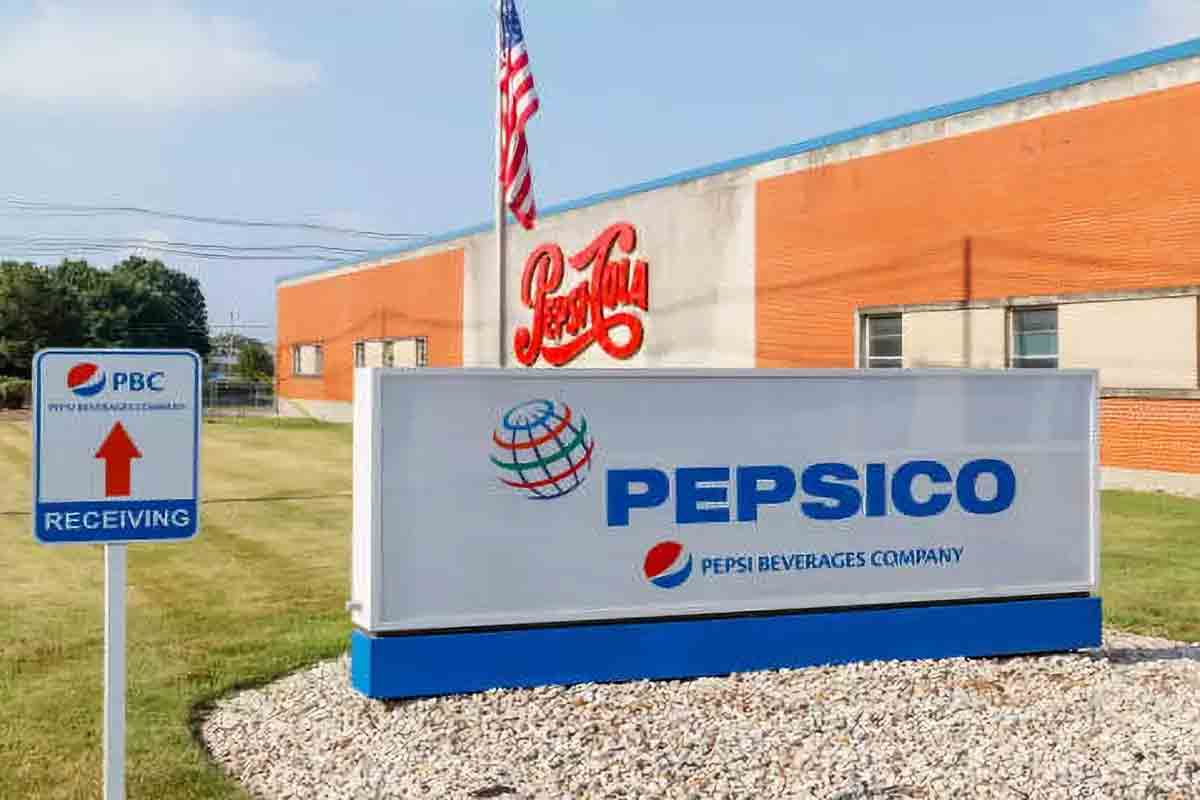Global supermarket chain Carrefour has announced a bold move, opting to stop selling popular PepsiCo products in its stores across France, Belgium, Spain, and Italy. The decision comes in response to what Carrefour deems as “unacceptable price increases” for items such as Lay’s potato chips, Quaker Oats, Lipton Iced Tea, and the iconic Pepsi soda.
Carrefour, with a vast network of 12,225 stores spanning more than 30 countries, has already removed PepsiCo products from its shelves in France, accompanied by small signs declaring, “We no longer sell this brand due to unacceptable price increases.” While the ban is set to extend to Belgium, Spain, and Italy, the company has not provided a clear timeline for the implementation of this decision in those regions.
This move by Carrefour aligns with the backdrop of a new French law aimed at combating the rising cost of living. The legislation stipulates that supermarkets face substantial fines unless they reach agreements with suppliers on prices by the end of the month. The French government, led by President Emmanuel Macron, has been proactive in implementing measures to alleviate the financial burden on households, passing a law in November that accelerates annual negotiations between supermarkets and suppliers on setting prices.
Despite Carrefour’s decisive action, PepsiCo products were reportedly still available on shelves in Rome and Barcelona as of Friday. Carrefour Italia’s press office has stated that information regarding the discontinuation will be communicated to customers in Italian stores in the coming days.
PepsiCo responded to the situation with a statement indicating ongoing discussions with Carrefour over the past months. The company expressed its commitment to engaging in good faith to ensure the availability of its products to consumers.
PepsiCo, known for brands like Cheetos, Mountain Dew, and Rice-A-Roni, has implemented double-digit percentage price hikes for seven consecutive quarters. The most recent increase, recorded at 11% during the July-to-September period, has contributed to improved profits. However, the higher prices have had a contrasting effect on sales, prompting consumers to shift towards more affordable alternatives. In response to evolving consumer preferences, PepsiCo has also acknowledged reducing package sizes to cater to the demand for convenience and portion control.
According to PepsiCo Chief Financial Officer Hugh Johnston, consumer selectivity is currently evident, influencing purchasing decisions. Despite the consecutive price hikes, the company remains optimistic that prices will align with inflation trends, which have decreased globally since disruptions in supply chains during the COVID-19 pandemic and geopolitical events such as Russia’s war in Ukraine.
PEOPLE ALSO READ
What Are The Keys To Building Wealth Through Investments?
However, consumer prices in the 20 European Union countries that use the euro currency saw a rebound, rising to 2.9% in December from a year earlier. This increase followed seven straight monthly declines. Notably, food and non-alcoholic drink prices eased from a significant 17.5% in the euro area in March but remained elevated at 6.9% in November from the previous year.
The showdown between Carrefour and PepsiCo raises questions about customer loyalty, with experts emphasizing the ultimate test of whether consumers align more with their preferred store or brand. Burt Flickinger III, managing director of grocery consultancy Strategic Resource Group, believes PepsiCo’s aggressive approach in raising prices may have made it a target, suggesting that other major brand names could face similar challenges. This sentiment is echoed by Rob Dongoski from management consultancy Kearney, who sees the situation as a critical examination of where customer loyalties lie.

While such conflicts over prices leading to the removal of products from shelves are rare, they are not unprecedented. Kraft Heinz’s temporary suspension of supplies to British retailer Tesco in 2022 due to a pricing dispute serves as a recent example.
In the United States, several grocery sellers, including Walmart, have expressed dissatisfaction with consumer product companies continually raising prices despite an overall decline in inflation. Walmart’s CEO Doug McMillon stressed the importance of price reductions in response to the changing economic landscape.
Stew Leonard Jr., president and CEO of Stew Leonard’s, a supermarket chain in the U.S., had previously warned major consumer product companies against further price increases, citing the perceived limits of customer tolerance. However, he acknowledged that price increases had eased for many items, except for meat.
For PepsiCo, the rationale behind its price hikes has been attributed to higher costs for grain and cooking oil. The surge in costs for these food commodities following Russia’s invasion of Ukraine has since subsided on global markets, contributing to lower prices in 2023 compared to the previous year.
PEOPLE ALSO READ
Uncle Sam’s Hiring Spree: Job Market Roars, But Can It Weather 2024?
The U.N. Food and Agriculture Organization reported a 13.7% decrease in its food price index in 2023 compared to the previous year. However, measures of sugar and rice prices showed an increase during the same period. Despite this overall relief, families at supermarkets are yet to experience the full extent of the price reductions.
In conclusion, the conflict between Carrefour and PepsiCo underscores the challenges posed by fluctuating global prices, supply chain disruptions, and the delicate balance between brands and retailers. The outcome of this confrontation may set a precedent for how major corporations navigate the delicate task of pricing their products in the post-pandemic era.
